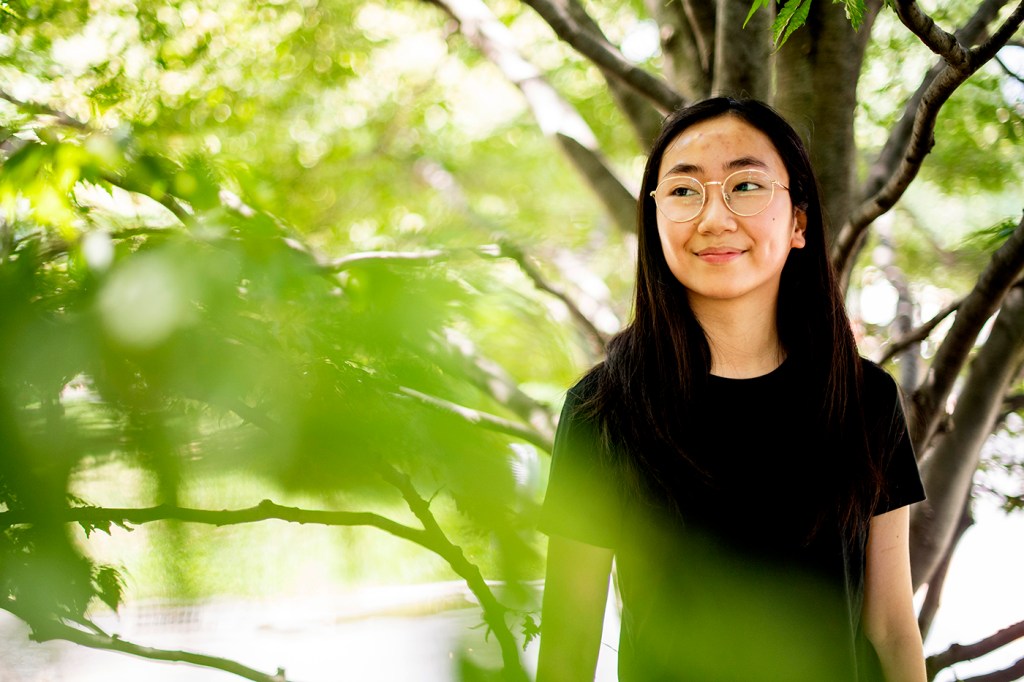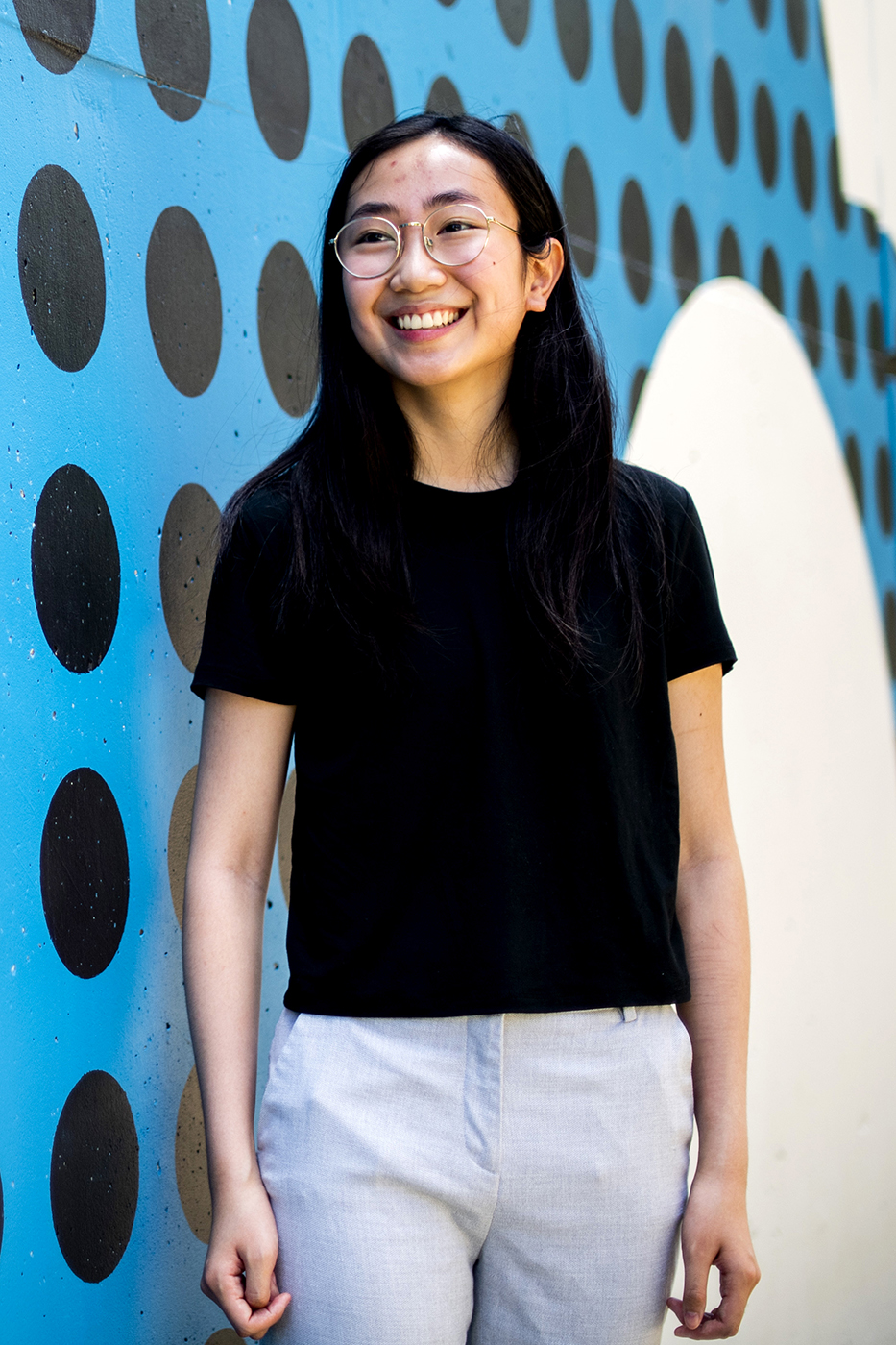From penguins to plastic forks, she’s tackling sustainability

With the benefit of hindsight, Janet Cheung can say she became interested in the environment in first grade, when she became obsessed with penguins. Her class would watch documentaries about Antarctica, and how climate change was affecting the continent and the animals that lived there.
Eleven years later, that interest has driven her to study political science and environmental studies at Northeastern, where she will start classes in the fall. But even before she matriculated, Cheung was involved with the university through Northeastern’s Youth Development Initiative Project, a program that works to prepare youth to get into college and succeed there.
Cheung recalls that she was pretty shy as a kid, and that it got worse when her family moved from the tight-knit community in Boston’s Chinatown to the city’s Allston neighborhood when she was 11. She was suddenly at a much larger school, and felt overwhelmed.

Incoming freshman Janet Cheung first got involved with Northeastern through the Youth Development Initiative Project, a program that works to prepare youth to get into college and succeed there. Photo by Matthew Modoono/Northeastern University
After the move, when Cheung was in middle school, her mother found out about the Northeastern program, and Cheung credits the serendipitous opportunity for helping her come out of her shell.
The Youth Development Initiative Project offers a variety of programs to families, including after-school tutoring for kids from Northeastern students, summer internships on campus, and weekend workshops for parents and children.
“I was really fortunate to join this program at such a young age because it gave me a stronger baseline,” Cheung says. “I was never left in the dark—I was always able to get help. It helped me come out of my comfort zone, interacting with other people, not just other students but the mentors too.”
Carl Barrows, the program director, says he and his staff help kids academically, but also teach them things they won’t learn about in school—such as how to manage their time and finances, as well as critical decision-making skills. And, he says, the program takes a holistic approach, helping parents as well.
“We would have a lot of those same types of conversations for parents as well, geared toward what they can readily apply,” Barrows says. “We’ve had financial literacy workshops, they talked about better banking, saving for college, the importance of life insurance.”
And it was at an internship Cheng got through the youth program that she reconnected with her love of the environment.
She worked in various departments within Northeastern’s Office of Finance during her internship. While there, Cheung worked to make the office kitchen more sustainable.
The primary change Cheung enacted was getting rid of single-use items that people had been using every day—plastic forks and knives, disposable coffee cups—and replacing them with reusable options, then setting up a schedule for running the dishwasher, to make sure things stayed clean.
Cheung, then 16, was totally in charge of the project, writing up the proposal, getting approval, and presenting the final changes to the staff.
Running the project on her own was a big responsibility, but one Cheung was excited to take on.
“It had been a goal of the office for a while; they had made the office more green so they wanted to do the kitchen as well,” Cheung says. “It was fun to be able to lead my own project, especially being so young.”
For Barrows, it represented how much Cheung had grown over the years.
“She was a completely different individual,” Barrows says of Cheung’s first few weeks in the program. “She was closed off—she was smart and worked hard but wasn’t that sociable, and I think one of the intangibles and the environment and the culture of YDIP is creating this family environment and helping people be themselves.”
While Cheung says the Youth Development Initiative Project helped her gain confidence, Nancy Figueroa, assistant program director, says Cheung had it in her all along.
“Her vision was always there,” Figeuroa says. “It was just going through these roadblocks, making sure she kept her vision in line, providing those resources, and those networking connections that Northeastern has—connecting with the right people to help her get to where she needs to be. We provided those stepping stones but she’s the one with the true vision.”
Cheung says she was drawn to Northeastern because of the experiences her YDIP student mentors’ were having. They told her about the community on campus, going on co-op and getting “a foot in the real world.”
She envisions working as a policy analyst at a non-profit organization, and influencing climate change policy.
Barrows and Figueroa have no doubts that Cheung can accomplish anything she sets her mind to, because she has always worked to improve herself and others.
“As good as she was at something, she always tried to do more and be better,” Figueroa says.
For media inquiries, please contact media@northeastern.edu.




